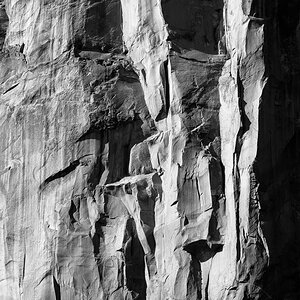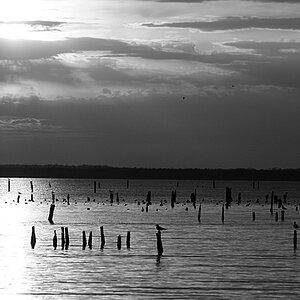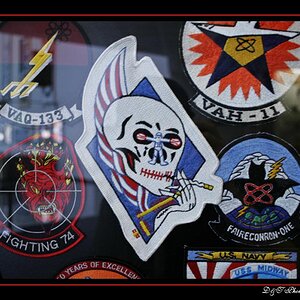bahandi
TPF Noob!
- Joined
- May 2, 2008
- Messages
- 213
- Reaction score
- 0
- Location
- Winnipeg, Manitoba, Canada
- Can others edit my Photos
- Photos OK to edit
(Please note... I'm not looking to start an argument. Nor am I looking to get people to repeat stuff that may have been said already. So if all that needs to be done is to post a link, please do so.)
Question 1: Why do Canon and Nikon products seem to come out on top all the time?
When I first bought a camera, I picked up an Olympus... I believe it was the FE 70 or 700. Something like that. I liked the thing, it did what I needed it to do.
Later on, someone told me that Canon's were better, so I gave my Olympus to my mom and picked me up the model before the Canon SD 750. Further down the road, I 'upgraded' to the SD 750 itself.
Now, I find that I need a little more control, but probably couldn't invest the time into a DSLR so I picked up a 'bridge' type camera, the extended zoom or 'advanced' P&S ones (which is the camera I have now... the Olympus SP 550 UZ)
Excitedly, I called up my cousin and immediately, he shoots down my choice, citing that "Canons and Nikons were the best in the market, but for $250 cdn, as long as I was happy with it." What gives?
Question 2: What are your criteria in choosing a camera... other than the brand?
I'm always on Future Shop's website looking at the specs of anything I am thinking about buying. Recently, I've been looking into DSLRs, though I'm still unsure about the commitment.
What makes a camera 'better' than the other? Aperture range? Shutter speeds? Optical zooms? I knew nothing about all this when I picked up my Olympus.. just that it was selling for practically nothing. Now I know that it's:
Man, sorry for the novel.
Bahandi
Question 1: Why do Canon and Nikon products seem to come out on top all the time?
When I first bought a camera, I picked up an Olympus... I believe it was the FE 70 or 700. Something like that. I liked the thing, it did what I needed it to do.
Later on, someone told me that Canon's were better, so I gave my Olympus to my mom and picked me up the model before the Canon SD 750. Further down the road, I 'upgraded' to the SD 750 itself.
Now, I find that I need a little more control, but probably couldn't invest the time into a DSLR so I picked up a 'bridge' type camera, the extended zoom or 'advanced' P&S ones (which is the camera I have now... the Olympus SP 550 UZ)
Excitedly, I called up my cousin and immediately, he shoots down my choice, citing that "Canons and Nikons were the best in the market, but for $250 cdn, as long as I was happy with it." What gives?
Question 2: What are your criteria in choosing a camera... other than the brand?
I'm always on Future Shop's website looking at the specs of anything I am thinking about buying. Recently, I've been looking into DSLRs, though I'm still unsure about the commitment.
What makes a camera 'better' than the other? Aperture range? Shutter speeds? Optical zooms? I knew nothing about all this when I picked up my Olympus.. just that it was selling for practically nothing. Now I know that it's:
- 18x optical and I think 100x total.
- ISO 50/100/200/400/800/1600/3200/5000
- Aperture Value f2.8-8.0 (i think the minimum is 4.5 at full zoom)
- Shutter speed 15" to 1/2000
- 4.7 to 84.2 mm (lens length? lol... don't even know the significance of the length of lenses)
Man, sorry for the novel.
Bahandi






![[No title]](/data/xfmg/thumbnail/41/41924-6ae94add98501b0c7ebd13870b86cf70.jpg?1619739945)




